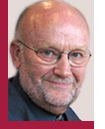Archive for June, 2008
-
16
JunBoyer’s Scholarship Reconsidered
This morning I mentioned that a reading of Ernest Boyer’s Scholarship Reconsidered: Priorities of the Professoriate might lead one to a somewhat different sense of the term “scholarship of teaching” than is current in the literature. I frequently encounter the term used to indicate that teachers should do research on the success or failure of the teaching strategies they employ. On the other hand, I think Boyer was referring to the idea that teaching is itself a scholarly activity, that one learns and expands one’s conceptual structures by engaging in teaching. Boyer makes the same point about the gains that come from engaging in the scholarship of discovery research, of integration and of application. The Boyer book is available in Scott Library (LA 227.3 B694 1990) and a brief, but informative, discussion of a portion of it can be found here.
-
15
JunCourse Experience Questionnaire
Ramsden points (pp 221-222) to the “Course Experience Questionnaire” as a good tool for assessing the quality of teaching from the point of view of students’ experiences. The questions used in the survey are available here. I think these could easily be adapted for any course as a means of evaluating whether one’s students are experiencing the course in the ways most likely to lead to deep learning.
-
06
JunCST’s Teaching Practicum
This week we briefly discussed the Teaching Practicum offered by York’s Centre for the Support of Teaching. The UTAL course satisfies some, but not all, of the requirements of this program. For a full description of the practicum and its requirements, go to this page of the CST website.
-
04
JunLearning outcomes and accountability
 David Baume, author of two of the items assigned for today’s class, was at York just a few weeks ago to lead a workshop for York Department administrators on the construction of learning outcomes for Department level programmes. You are likely to hear a lot more about efforts of this sort in the future as governments across the world are putting pressure on universities to specify the outcomes students can expect to achieve by completing any particular degree. The push seems to be based on two factors – one, an idea that universities should be more accountable with respect to the benefits they provide in relation to the public’s financial investment, and two, an idea that universities should be offering comparable programmes that make it easy for students to move from one university to another in pursuit of their degrees.
David Baume, author of two of the items assigned for today’s class, was at York just a few weeks ago to lead a workshop for York Department administrators on the construction of learning outcomes for Department level programmes. You are likely to hear a lot more about efforts of this sort in the future as governments across the world are putting pressure on universities to specify the outcomes students can expect to achieve by completing any particular degree. The push seems to be based on two factors – one, an idea that universities should be more accountable with respect to the benefits they provide in relation to the public’s financial investment, and two, an idea that universities should be offering comparable programmes that make it easy for students to move from one university to another in pursuit of their degrees. In Ontario universities the acronym UUDLEs is heard increasingly in this context; it stands for university undergraduate degree level expectations. You can read more about the Ontario project here. One of York’s Associate VPs Academic is a staunch supporter of this initiative and you can read his account of the workshop Baume led here.
Many faculty members asked to specify learning outcomes for their courses or programmes fear that this initiative is simply a first step in homogenizing offerings and making it easier for governments to apply a simple-minded system of comparing instructors, courses, degrees or universities with respect to which ones are worthy of funding. In 2006 the Spellings Commission, convened by the US Department of Education, released a report pushing universities to specify and evaluate the attainment of learning outcomes. For a sense of the controversy surrounding the Commission’s efforts see this article from Inside Higher Education. A long list of related articles can be found here.
-
02
JunDepartment-level Goals
I mentioned York’s Department of Political Science today as a unit that has developed a set of goals to guide their work that seem to actually capture something meaningful. If you would like to look at these goals more closely, you will find them on the Department’s Undergraduate Program webpage. Perhaps there is no significance to the order, but I find it interesting that the Department’s goals with respect to Critical Skills are described ahead of those for Political Analysis and Democratic Awareness. Another program that seems to have given a good deal of thought to describing their philosophy and goals is the School of Nursing.
I also mentioned in the class that the course goals which I placed on the UTAL 5000 Syllabus were adapted from those of one of my predecessors in directing the course. I had not yet read Ramsden’s chapter on goals when I made the revisions, so was working on my intuition as to what made sense as goals. You are welcome to have a look at the originals, compare them to my revision and then comment on whether you think I was moving in the right direction or not. I would also welcome comments on whether you think there are other goals implicit in what we have been doing that could be made explicit on the syllabus, as well as on whether there are goals that ought to be in the course but that have been missed out altogether. You will find the two sets of goals written out together here.
 RSS
RSS